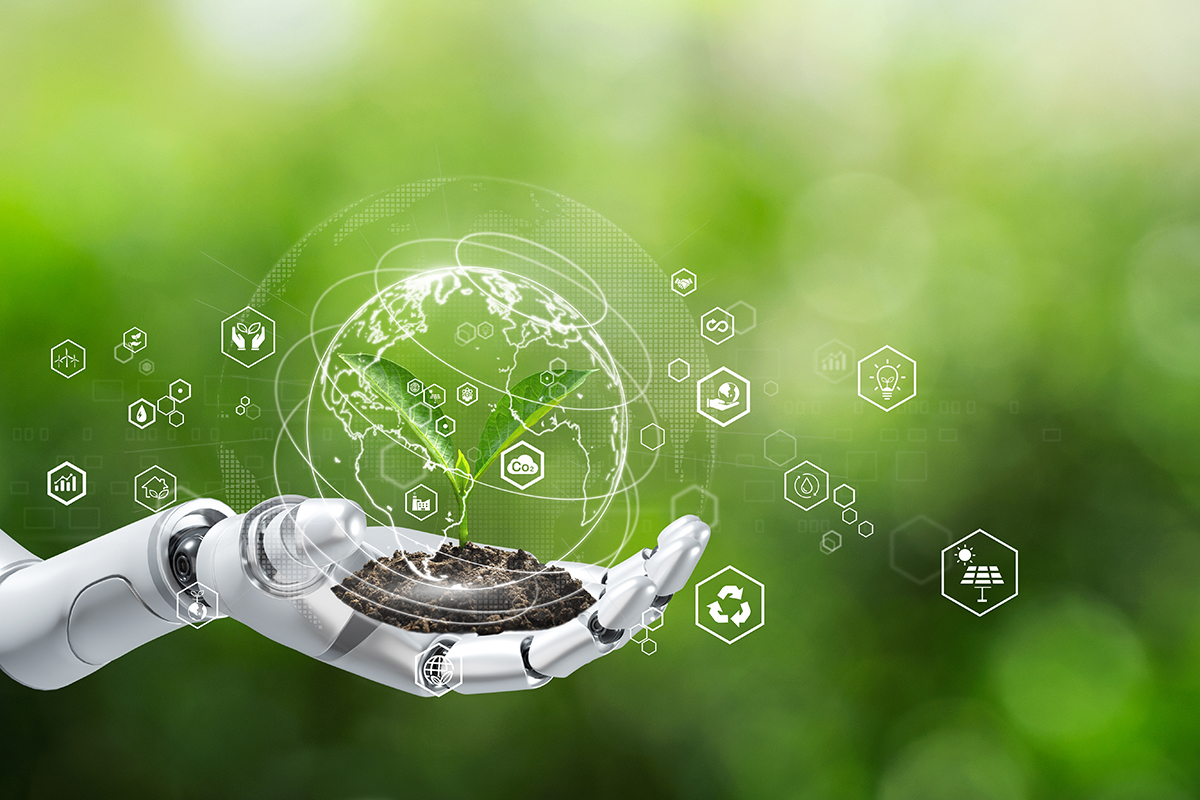Is AI the Future of Clean Energy

Published: Friday, 12 April 2024
As demand grows in the electricity sector and there is a transition away from fossil fuels, the industry is looking for technological advancements to help maintain the demand for our electrical sector, and being able to make quick decisions in real-time could be the difference between power being used effectively or not. In this article, we will be looking at the question of whether AI is the future of clean energy and what the system can impact in the electrical sector.
What is AI?
Artificial intelligence (AI) is classified by the intelligence of a machine or software. AI has been designed with a variety of algorithms and code that allow the machine to reason and solve problems, among many other features like those of humans. In recent years, AI has been implemented into infrastructure and can make quick decisions in real-time.
How is AI affecting renewable energy?
AI has been affecting industries in many ways since its integration. The renewable industry has found ways for AI to help renewable energy become more efficient.
Sensor Technology and Capacity Levels
With the increased integration of renewable energies into the national grid, being able to predict overall capacity levels has become vital to making sure our grid stays efficient and stable. This is mainly because renewables are taking up a greater share of the grid, which means there is less baseload generation for fossil fuels such as coal. If supply can’t meet demand, power networks risk becoming unstable and leading to blackouts. With how renewable energies function, we can get real-time data from sensor technology that allows AI to predict capacity levels.
Climate and Weather Simulation
With advances in climate research, we can have more accurate readings of what weather will be like day-to-day due to physics-informed weather modelling, high simulations of the earth, and more. With this technology, we can predict energy generation from solar and wind, which also helps us predict our capacity levels for future months.
Battery Storage
For renewable energies, battery storage has been a great asset for providing the grid and homes with demand flexibility, especially during off-peak hours, such as solar energy powering houses through the night due to battery storage. With the integration of AI into these systems, battery storage can be activated very quickly and deal with peak electrical use. It is also great at minimising the backup energy required from non-renewable energy sources, such as diesel generators. With this AI integrated with sensor technology and weather simulation, it will be able to predict and effectively make energy management storage decisions that could increase the overall productivity of renewable energies and help people save money in the process.

Challenges of AI in the sector
AI in the renewable sector shows great promise; however, implementation of the whole sector comes with its challenges.
Cyber Attacks
Being in the digital age that we are in, one of the main concerns with relying on AI too much in our energy systems is that it could leave our energy networks at risk of cyberattacks. We have already seen cyberattacks in the past 10 years that shut down multiple substations offline, leaving people without electricity for many hours. However, with technology changing recently, it is becoming increasingly difficult for hackers to get into systems, especially at such a large scale, due to operating technology (OT) being isolated from information technology (IT) systems.
AI Limitations
Another issue with AI is the current limitations of the system. As renewable and AI systems are relatively new, AI does not have historical data available as it has only recently existed. In the future, this won’t be an issue, but there are ways currently to help mitigate this issue, such as selective data sources.
Consumers
Another initial issue AI will face is the general mistrust of consumers. Initially, people are likely to be sceptical that the technology would help them save money without negatively affecting current energy services. Providing training and educational materials will be a good solution to helping consumers understand the benefits of the software and how it will overall benefit them in the future if the system is integrated.
Future
The future of clean energy is looking very bright, and the integration of AI, it can help keep the system efficient all year round while we transition away from fossil fuels. With the demand met in the electrical sector, we could see a positive change within a variety of different sectors, such as the housing sector.
To learn more about renewable energies, check out our article here.

